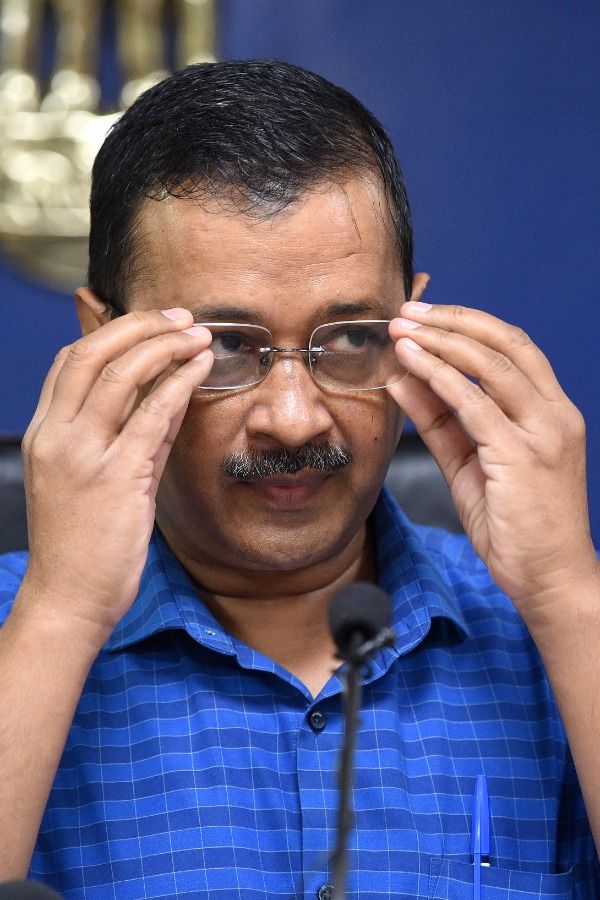Arvind Kejriwal: Biography, Career, and Impact on Indian Politics
Arvind Kejriwal Biography: A Leader Revolutionizing Indian Politics
Arvind Kejriwal Biography: Arvind Kejriwal is a well-known figure in Indian politics, celebrated for his anti-corruption efforts, revolutionary ideas, and significant contributions to the development of Delhi. Serving as the Chief Minister of Delhi, he has become a transformative leader in Indian politics, with his leadership style marked by transparency, bold decisions, and an emphasis on good governance. His rise from a civil servant to a political leader is a fascinating story of dedication, courage, and social activism.
This article explores Arvind Kejriwal’s biography, his career trajectory, key achievements, and his impact on Indian society.
Arvind Kejriwal Biography, Early Life and Background
1. Birth and Education
- Born: August 16, 1968
- Hometown: Hissar, Haryana, India
- Education: Arvind Kejriwal is an alumnus of IIT Kharagpur, where he completed his Bachelor’s degree in Mechanical Engineering. Before entering politics, Kejriwal had a successful career as a civil servant. His journey as an activist and politician started after he decided to pursue social causes rather than corporate opportunities.
Kejriwal’s education at IIT Kharagpur gave him a strong foundation in problem-solving, which would later shape his approach to governance. His sense of social justice and passion for creating systemic change led him to join the Indian Administrative Service (IAS).
Arvind Kejriwal Biography, Civil Services and Social Activism
2. A Career in the Indian Administrative Service
Arvind Kejriwal joined the Indian Revenue Service (IRS) as an officer, working in various parts of the country. His work in the government exposed him to the corruption and bureaucratic inefficiencies that plagued India’s administrative system. This experience led him to challenge the system and seek reforms.
3. Anna Hazare and the Anti-Corruption Movement
In 2011, Kejriwal became a prominent figure in the India Against Corruption movement, led by Anna Hazare. Kejriwal played a pivotal role in mobilizing support for the Jan Lokpal Bill, which aimed to establish an independent anti-corruption body. The movement’s widespread popularity marked the beginning of Kejriwal’s political career.
Arvind Kejriwal Biography, Political Career and Achievements
4. Founding AAP (Aam Aadmi Party)
In 2012, Arvind Kejriwal founded the Aam Aadmi Party (AAP), a political party focused on combating corruption and promoting transparency. The party’s slogan, “Aam Aadmi ka Haq” (Rights of the Common Man), resonated with millions of Indians who were disillusioned with traditional political parties.
Kejriwal’s vision for AAP was to build a party from the grassroots, free from the influence of money and corporate interests, focusing on the needs and aspirations of the common man.
5. First Term as Delhi’s Chief Minister
- First Term: Arvind Kejriwal became the Chief Minister of Delhi in December 2013, after AAP won an impressive number of seats in the Delhi Legislative Assembly elections. However, his first term was short-lived as he resigned in February 2014 after failing to pass the Jan Lokpal Bill in the Delhi Assembly.
6. Second Term and Major Reforms
- Second Term: Kejriwal’s party won a landslide victory in the 2015 Delhi elections, with AAP securing 67 out of 70 seats. This overwhelming mandate allowed him to focus on delivering his vision for Delhi, which included:
- Improvement of education and healthcare systems.
- Free water and subsidized electricity.
- Fight against corruption with transparency initiatives.
- Public transport reforms, including the expansion of Delhi’s metro network.
Kejriwal’s leadership has led to notable improvements in Delhi’s education sector, with new government schools, modernized classrooms, and emphasis on quality education for all.
7. Focus on Healthcare and Infrastructure
Arvind Kejriwal’s government made significant strides in healthcare by improving government hospitals and making them more accessible to the public. The Mohalla Clinics, aimed at providing affordable healthcare services to people in their local neighborhoods, have been a flagship initiative.
His government also worked on improving infrastructure in Delhi, with an emphasis on cleaner streets, better public transport, and better facilities in public spaces.
Arvind Kejriwal Biography, Challenges and Controversies
8. Tensions with the Central Government
Kejriwal’s tenure has not been without challenges. His government often faced conflicts with the BJP-led central government, which led to political tension and frequent standoffs. These tensions led to disagreements over administrative control in Delhi, especially in areas such as police functioning and local governance.
Despite these challenges, Kejriwal continued to push his reforms and policies, ensuring that Delhi’s development remained on track.
Arvind Kejriwal Biography, Daily Life and Work Ethic
9. Leadership Style
Arvind Kejriwal is known for his simple lifestyle, often opting for a modest public appearance. He has become a symbol of integrity and accountability in a landscape often filled with corruption. His leadership style focuses on teamwork, with Kejriwal often working closely with his cabinet and seeking input from experts and citizens.
10. Personal Life and Interests
Outside of his political work, Kejriwal is a family-oriented person. He is married to Sunita Kejriwal, an officer in the Indian Revenue Service. They have two children. Kejriwal is also known to be passionate about social causes and spends time engaging with citizens, attending public meetings, and discussing their concerns.
FAQs About Arvind Kejriwal Biography
Q1: What is Arvind Kejriwal’s primary political agenda?
A1: Kejriwal’s primary agenda revolves around anti-corruption, good governance, education reform, and healthcare accessibility.
Q2: Has Arvind Kejriwal ever been part of a national party?
A2: No, Kejriwal formed the Aam Aadmi Party (AAP) after his association with the India Against Corruption movement. AAP is independent of national parties like the BJP and Congress.
Q3: What is the significance of the Mohalla Clinics initiative?
A3: The Mohalla Clinics are a unique initiative by the Delhi government to provide affordable healthcare at the doorstep of citizens, focusing on prevention and basic healthcare services.
Q4: How successful has Arvind Kejriwal been as Delhi’s Chief Minister?
A4: Kejriwal has been successful in implementing several key reforms, especially in education and healthcare, which have been widely appreciated. His second term, marked by significant electoral victories, is regarded as a period of substantial progress for Delhi.
Conclusion: The Continuing Journey of Arvind Kejriwal Biography
Arvind Kejriwal’s rise from an activist to Chief Minister represents the transformation of Indian politics, where leaders are expected to be more accountable, transparent, and solution-oriented. His focus on grassroots governance, education, and healthcare reforms has made him a strong leader for the people of Delhi. While challenges remain, Kejriwal’s journey will continue to influence India’s political landscape for years to come.
We wish Arvind Kejriwal the best in his continued efforts to improve Delhi and India’s governance. 🌟











It is appropriate time to make some plans for the future and it’s time to be happy. I’ve read this post and if I could I want to suggest you some interesting things or tips. Maybe you could write next articles referring to this article. I wish to read even more things about it!
I’ve been browsing on-line greater than 3 hours today, yet I by no means discovered any interesting article like yours. It is beautiful price sufficient for me. In my view, if all website owners and bloggers made excellent content material as you did, the internet might be a lot more helpful than ever before. “Now I see the secret of the making of the best persons.” by Walt Whitman.
80oxwx
Have you ever considered writing an ebook or guest authoring on other blogs?
I have a blog based on the same information you discuss and would love to
have you share some stories/information. I know my readers would
value your work. If you arre even remotely interested, feel free tto send mee an e-mail.
Here is my webpage; https://www.fapjunk.com